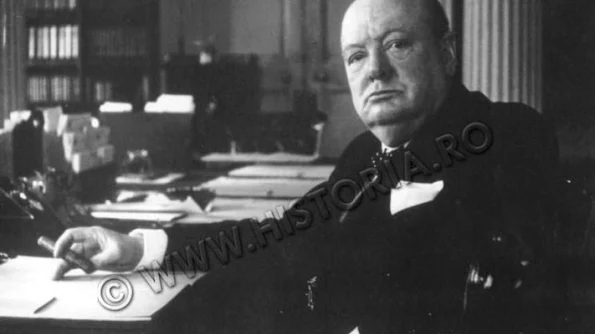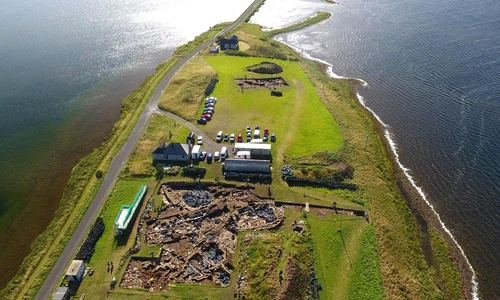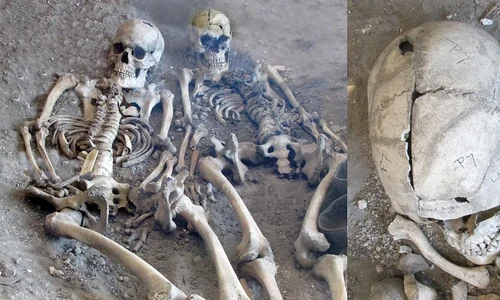
How was the WW2 turned against the USSR?
Even though there have been written many books, monographs and studies on the subject of WW2, there is still much more to discover about it. Leon Kilzer demonstrates in his book entitled Churchill’s Deception – The Dark Secret That Destroyed Nazi Germanythe fact that the declassified documents of the Great Powers could reveal important unknown aspects of the WW2.
Churchill’s Maneuvers
Usually, Western European Governments have classified documents for a period of 30 years, however, some countries extended this time to 35 or 40 years. The interest of the historians was aroused when the UK declassified certain strictly confidential documents:the transcripts of the debates in Winston Churchill’s government. Leon Kilzer’s book compiles the results of the study of these “embarrassing” documents, in which he describes academically the way Churchill made Hitler invade the USSR and not the UK.
The Pulitzer winner and journalist Louis C. Kilzer brings to the light British documents that demonstrate Churchill’s unknown-until-now maneuvers which may taint his public memory. The book reveals that prime-minister Churchill convinced the Ministers of his Cabinet to decline the German generals’ multiple offers to assassinate Hitler, in order to stop the war. The transcripts of the British Government’s sessions show how Churchill cynically subjected to approval or disapproval the German offers:“Hitler is just a man who will die sooner or later. The danger for the British Empire is Germany, not Hitler. We must make Hitler attack the USSR, because there’s where he’ll find his end and we’ll dismember Germany.”
The Fake Hess
The German generals decided to assassinate Hitler in 1939 and 1940, on condition that the UK signed a document which acknowledged its non-intervention in the German civil war that would ensue after the dictator’s disappearance. After refusing the Nazi generals, Churchill received an amazing offer from Hitler himself:a British – German treaty which would give London the Western Nazi controlled territories, if the UK guaranteed Berlin’s interests in the conquered Eastern Europe. Churchill declined Hitler’s offer, however, he observed the dictator’s obsessive desire to make peace with the UK. This way, the British prime minister adroitly met Hitler’s illusions by making him believe in London’s desire to conclude peace as well (initially, because Churchill needed time to rearm his troops). Subsequently, when the Wehrmacht conquered France and reached the English Channel, Churchill launched an initiative meant to stop Hitler:the English invited Hitler’s deputy Rudolf Hess to the UK for a “peace conference”, where the Germans would negotiate with Great Britain’s Peace Party the invasion of the USSR.
Rudolf Hess flew secretly to the UK on a plane especially equipped with additional fuel tanks. Stalin’s spies in the English Cabinet (Philby, Blunt, Cairncross) informed Moscow of every meeting between Hess and the British. During the WW2, it appears that Churchill kept Hess in England as a prisoner, in order to avoid being exposed. To this end, he sent to the Nürnberg Trials a lookalike of Hess who refused for 28 years to receive the visit of his family members at the Spandau prison. There is also a medical problem whereas Hess is concerned:prisoner no. 7 at Spandau did not have Hess’s surgical scar which resulted after he underwent an operation during the WW1.
Questions and Answers
In the end, there is a more important question that the identity of prisoner no. 7 from the Spandau prison and this is:Was the Hess maneuver useful? To what end? Did it save England from defeat turning the war against the USSR?
Yes, it did save the UK, however, it was delivered from a dictator who did not intend to defeat England in the first place. The author of the book is of the opinion that Hitler saved the UK as much as Churchill did.
Did Churchill’s obstinacy to fight against Germany make the British Empire progress? No, the British Empire disintegrated after the war and the UK was weakened as a country.
Did Nazi Germany manage to stop the communist expansion in the world? Again, no. It achieved the exact contrary:the extension of communism from Berlin to Pekin. The war transformed the USSR from a European Power to a World Super Power. Its objective was never shared by Hitler – the achievement of universal hegemony. It is also true that Churchill ended the existence of one of the worst leaders in history. However, he stopped him too late, because the genocide had already taken place.
The author of the book managed to find concrete facts in secret archive documents:
- after his victories in Western Europe, Hitler decided to stop because he claimed he needed 100 years to consolidate them.
- He made a written proposition for the liberation of the Nazi conquered countries in Western Europe
- From September 1939 until 22 June 1941, Hitler ordered the demobilization of 30 divisions so as to end the war, not to continue waging it.
- If the UK accepted the peace offer, it would have been favourable to London;the documents state this very clearly. England officially declined the offer, but secretly accepted it, however, this led to the worst possible outcome:without bringing the situation in the West to an end, Hitler was offered a free hand in the East.
A peace concluded in 1940 would have had a very high price:Poland would not have existed as a state anymore, Czecho-Slovakia would have remained a German protectorate and the majority of Eastern European non-Soviet countries would have entered the Nazi sphere of influence almost the same as the Western Hemisphere under the Monroe Doctrine. The Jews would have been excluded from Central Europe.
Was this worth stopping through the supreme sacrifice of 52 million people? It is very hard to answer affirmatively when the new Europe found Poland, Czechoslovakia and the rest of Eastern Europe in a far greater slavery than Hitler imagined in 1940.
In the end, I would like to give the readers some food for thought:can we imagine that, thanks to its oil resources, Romania would have had under the German occupation, the same living standard like Austria or Switzerland? The documents demonstrate that when Charles I died in 1914 the exchange rate between the Romanian leu and the Swiss franc was almost 1:1.















